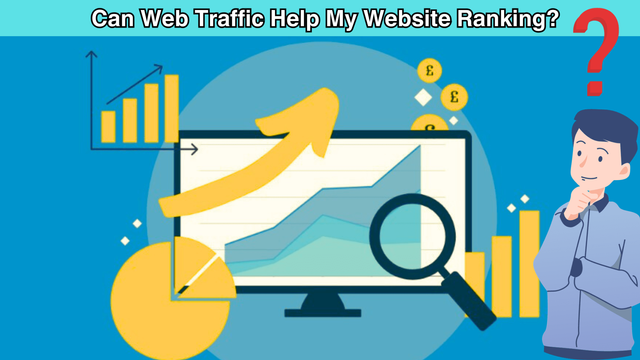Does More Website Traffic Increase Google Ranking?
In the realm of online visibility and success, the interplay between website traffic and Google ranking remains a subject of fervent discussion. Many often wonder: Can Web Traffic Help My Website Ranking? The nexus between these two elements is intricate and multifaceted, requiring a nuanced exploration to comprehend their correlation.

Introduction to Website Traffic and Google Ranking
In the digital landscape, website traffic stands as a cornerstone metric symbolizing the volume of visitors accessing a website. Simultaneously, Google ranking determines a website's position in search engine results, dictating its visibility to users. Aspiring to secure a higher rank on Google's search engine results page (SERP) is a common goal for website owners and businesses, as it can significantly amplify their online presence and attract more visitors.
Understanding the Relationship Between Traffic and Google Ranking
Correlation vs. Causation
While an apparent correlation often exists between increased traffic and improved Google ranking, establishing causation remains a complex endeavor. Google's ranking algorithms consider numerous factors beyond traffic volume alone.
Factors Affecting Google Ranking
Google's ranking algorithm involves a multitude of metrics, including relevance, content quality, backlinks, user experience, and more. Traffic acts as one of the contributing metrics but doesn't singularly determine ranking.
Impact of Quality Traffic on Google Ranking
Relevance and Engagement
Quality traffic comprises engaged visitors genuinely interested in the content offered. Relevant traffic contributes positively to Google's evaluation of a website's worthiness to rank higher.
User Experience and Behavior Metrics
Google assesses user behavior metrics like bounce rates, dwell time, and click-through rates (CTRs) to gauge user satisfaction. Higher-quality traffic often results in longer dwell times and lower bounce rates, signaling a positive user experience.
Metrics That Influence Google Ranking
Organic search traffic, CTRs, and user behavior metrics significantly influence a website's ranking. However, a nuanced approach integrating various metrics is crucial for a holistic improvement in ranking.
SEO Strategies to Boost Website Traffic and Ranking
Implementing robust SEO strategies involves optimizing content relevance, acquiring authoritative backlinks, and enhancing user experience to attract quality traffic, subsequently impacting Google's ranking positively.
Debunking Common Misconceptions
Contrary to popular belief, mere traffic influx doesn't guarantee an immediate surge in Google ranking. The quality and relevance of content and user interaction also weigh heavily in Google's evaluation.
Case Studies or Examples
Several instances showcase websites experiencing a surge in traffic and subsequently witnessing an improved Google ranking due to comprehensive SEO strategies and engaging content.
Future Trends and Considerations
As search engine algorithms evolve, staying abreast of these changes becomes paramount. Adapting strategies to align with evolving trends and user preferences remains crucial for sustained ranking improvements.
Conclusion
In essence, while a relationship exists between website traffic and Google ranking, it's pivotal to discern that traffic alone isn't the sole determinant for ranking enhancement. Quality traffic, derived from relevant and engaging content, coupled with strategic SEO approaches, serves as the cornerstone for achieving sustainable improvements in Google ranking.